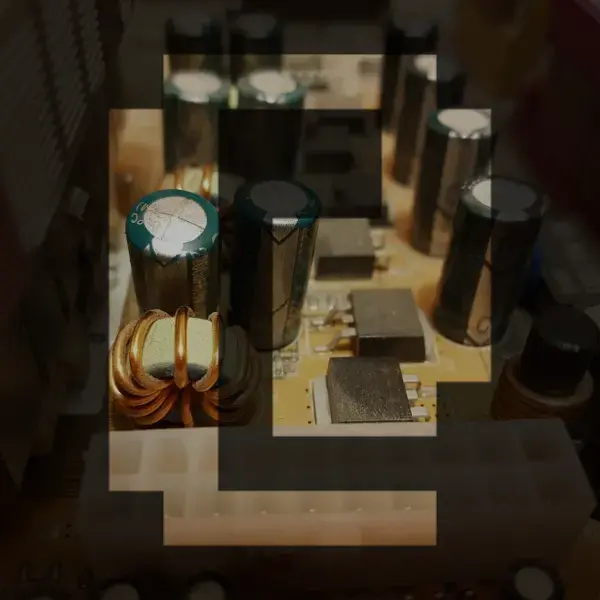You’re going to get a lot of comments about Ubuntu and snaps. Definitely one of the reasons I switched away from it.
For the uninitiated, as someone who’s looking to move from Windows to Linux and Ubuntu is probably my first choice, can you share what’s not to like about this?
Edit - insightful answers. Thank you
Snaps are technically foss but the server thst hosts them are proprietary to Ubuntu, when flatpak is perfectly reasonable. It’s a bit of a pattern of things they do, finding solutions to things they weren’t really problems (cough netplan cough)
Also they put ads in search long before Windows did and as much as I hate Microsoft we should never forget that.
Putting ads in foss is an irredeemable sin
Bring out the guillotine!
Not to defend them, but it was trivial to remove the adverts and they stopped after the “feedback”. Unlike Windows.
That’s fair and Microsoft fired their entire update testing team and then pushed multiple updates that bricked Windows installs. And that was just Windows 10.
You know that snaps existed before Flatpaks right?
So it would have been that much easier for Ubuntu to be first to market and open source the snap server software…
But they didn’t. And alternative solutions had to be created.
I’m not defending canonical decisions, but definably when they started working on this there was no other alternative available for them to collaborate at the time
Performance and functionality.
When I click the Firefox icon, I expect Firefox to open. Like, right away.
When Ubuntu switched it to a snap, there was a noticeable load time. I’d click the icon and wait. In the background the OS was mounting a snap as a virtual volume or something, and loading the sandboxed app from that. It turned my modern computer with SSD into an old computer with a HDD. Firefox gets frequent updates, so the snap would be updated frequently, requiring a remount/reload every update.
Ubuntu tried this with many stock apps (like Calculator), but eventually rolled things back since so many people complained about the obvious performance issues.
I’m talking about literally waiting 10X the time for something to load as a snap than it did compared to a “regular” app.
The more apps you have as snaps, the more things have to be mounted/attached and slowly loaded. This also use to clutter up the output when listing mounted devices.
The Micropolis (GPL SimCity) snap loads with read-only permissions. i.e., you cannot save. There are no permission controls for write access (its snap permissions are only for audio). Basically, the snap was configured wrong and you can never save your game.
I had purged snapd from my system and added repos to get “normal” versions of software, but eventually some other package change would happen and snapd would get included with routine updates.
I understand the benefits of something like Snaps and Flatpaks - but you cannot deny that there are negatives. I thought Linux was about choice. I’ve been administering a bunch of Ubuntu systems at work for well over a decade, and I don’t like what the platform has been becoming.
Also, instead of going with an established solution (flatpak), Ubuntu decided to create a whole new problem (snap) and basically contributes to a splitting of the community. Which do you support? Which gets more developer focus to fix and improve things?
You don’t have to take my word for any of this. A quick Google search will yield many similar complaints.
Thanks for the explanation. Now I understand the dislike for snap.
Oh! I forgot another one! Updates.
You can’t really control when the updates of snaps are rolled out.
For “regular” software, I have an “apt update” type of script that I can run when I choose to update everything on my system. On some systems, I have this in a weekly crontab. On other systems, there is no scheduled run. On those systems, it’s important to keep many apps as-is - so several packages are also locked, as well (“apt-mark hold”).
With snap, you basically have no control. It updates as many times as it wants, when it wants. You can try to adjust some timers to change the window when forced updates are rolled out, but can never tell it to NOT update something. Broken package updated? Well, you can manually roll back that one. Broken update pushed again during the next forced update window? Just roll it back again! (and repeat, every day)
These are the words direct from a snap developer on why you cannot lock an app: “You need to keep your software up to date.”
Yes, I understand that, but I also know it’s really important to not update some stuff, and I know that broken snaps sometimes get pushed.
Basically, the snap developers have talked down to the users. THEY know better of what WE actually want and need, not us dumb users that actually administer things for a living.
You basically have no control. It updates as many times as it wants, when it wants. You can try to adjust some timers to change the window when forced updates are rolled out, but can never tell it to NOT update something.
This is incorrect:
snap refresh --hold=forever
In general, I’d advise you to do a bit of research beforehand when giving advice…
Edit: Downvotes for factual information? Really?
The
--holdfeature was introduced with snapd v2.58 which was released as recently as Dec 1, so less than 9 months ago. So I would consider this a relatively new feature.Furthermore, as best as I can tell from the documentation, there isn’t even a way to configurably hold updates in general or for a specific package like can be done with apt-preferences;
refresh.holdonly allows 90 days out.I think it is a perfectly valid criticism that the snap developers didn’t implement this feature at all until well into the life of the product and then, even then, done begrudgingly at best evidenced by the minimal implementation.
Now, I feel like I did my research, but feel free to let me know if there’s something I can do better or if you have any other general life advice for me.
Thanks, this is a very good reply, and it would have been wonderful, when the original reply would have been similar.
For context:
Snaps are a way to build applications so that they can run on any platform with one build method. It makes it easier for developers to publish their apps across multiple different Linux distro without having to worry about dependency issues.
Snaps have been very poorly received by the community, one of the largest complaints is that a snap program with take 5-10 seconds to start, where as the same program without snap will start instantly.
Ubuntu devs have been working for years to optimize them, but it’s a complex problem and while they’ve made some improvements, it’s slow going. While this has been going on, Ubuntu is slowly doubling down more and more on snaps, such as replacing default apps with their snap counterparts.
On the other hand, other methods like flatpak exist, and are generally more liked by the community.
This has led to a lot of Ubuntu users feeling unheard as their feedback is ignored.
One word: snapd
If you like the idea of ubuntu, but wish to avoid ubuntu, you might want to check out Linux Mint.
how about popos?
Also a great option. I like their tiling window manager and the other gnome extensions they’ve done. I’m also generally excited about the work they’re doing with Cosmic as a new DE.
Been chomping at the bit for cosmic since I learned of it.
Isn’t that the one where Linus broke the WM by installing Steam? Lol
Are we just going to pretend Debian doesn’t exist?
We know. I’ve just grown accustomed how Ubuntu is set up. Its defaults for many packages seem a little more configured “out of the box” compared to the same offerings like from Debian. I seem to recall installing LAMP stuff from both Debian and CentOS having a similar base config (basically just using the defaults from php, apache, mysql, etc), while the Ubuntu versions had some things already pre-configured that made it easier to get a multi-domain site up and running quicker.
A fresh Ubuntu install, followed by a snapd purge and rolling back of its networking is usually easier for me than going with something like CentOS or Debian and manually configuring each and ever package with it.
Then again, I’ve been using Ansible for a while, so my setups for CentOS and Debian have been getting easier and easier, so it’s possible that I may eventually drop Ubuntu if they end up changing their OS so much that I can no longer purge their junk.
Zorin is my fav.
deleted by creator
deleted by creator
Thanks for the suggestion, but this doesn’t give me any info.
deleted by creator
You get a lot of recommendations for Mint here, but I’d like to toss in a recommendation for Pop!_OS. Also based on Ubuntu without all the crap. I would say the biggest difference between pop and mint is the UI, as Mint comes standard with cinnamon and pop with Gnome (soon cosmic) as their DE’s.
Just take a look at those two and choose one of them, they are both great distros, and absolutely the two I would recommend to just about anyone. Easy to use and very straightforward for new people trying out Linux.
I’ve been using Ubuntu for a long time for its out-of-the-box zfs support, but the snap annoyances are getting harder to ignore.
Firefox is one of the worst snaps. It pops up an annoying notification everyday reminding you to restarted it. Then came the crashing. It got to a point where I couldn’t keep my browser running more than a few minutes at a time.
I wanted to like snaps, and I’m not overall negative on Ubuntu, but keeping the web browser functional is minimum requirement. The Firefox PPA is much more reliable.
Follow-up: The icing on the cake was a release or so ago when apt started queueing the snap package’s installation instead. Very clever, but also a confusing user experience. It took a few iterations before I understood the snap was getting installed instead of the deb.
My Linux from Scratch install. It was built by a moron.
Manjaro, because because the team behind it fuck’s up a bit to often for my tastes. And Ubuntu, because they force snap onto their users.
deleted by creator
I spent the last 10 mins reading all the comments and I think we managed to shit on all the distros available.
That’s the Linux community I love, good job people <3No one gets left behind
Akuna Matata or some shit
Haven’t seen Santoku or Kali or several other special use-case distros (E: or Hannah Montana Linux hahahaha). But, yes, this is exactly the community I love and that extreme hate/love for specific distros is the reason I tried Linux in the first place (and the reason I stayed) hahaha
Nobody shits on MX, it’s a sign 😁
Garuda. It feels like being inside a gaming rig full of blinking RGB lights. Way over the top with the “gamer aesthetic”.
Same reason but different vibe with Kali for me. I’m sure it’s good for its intended purpose, but I get the feeling that there are many who install it in an attempt at being a kewl h4x0r. I used used Parrotsec for work for a while, and it’s a lot less flamboyant about it.
My desktop “breathes” in RGB so it sounds perfect for me. Plug me into the Matrix.
Fwiw it does have a ‘Lite’ edition that doesn’t include any theming.
Ubuntu.It’ went from a great beginner distro to a dumpster fire filled with snaps and telemetry.
Manjaro, for its incompetence.
I don’t hate Gentoo, but will never use it. I hate compiling.
Ubuntu - It was my first distro and I loved it for many years after 6.06. However, it slowly shifted from a very community focused distro (“Linux for human beings” was the original slogan) to a very corporate distro with lots of in-house bullshit, CLAs, and partially-closed projects that seems to focus on profit and business over actual human beings. I correlate this move to around the time when it became purple rather than brown. Snap sucks, Mir sucks, Unity sucks, integrating Amazon and music store paid bullshit sucks. Just no. Move to Debian.
Manjaro - It’s Arch, but with incompetence!
Red Hat - Do you enjoy paying licensing fees for a Linux distro that very likely violates the open source licenses it uses? RHEL is for you! Just remember not to share the code! Sharing is most certainly NOT caring!
How does Manjaro add incompetence? I’ve not used either for a while, buy Manjaro never failed me, while arch did manage to make my system nuke itself a couple times just running
pacman -Syyu. Granted, this was a long time ago, but it’s the only distro to so this to me ever.The project maintainers repeatedly forget to renew their certificates, causing package upgrades to fail.
The project maintainers, in multiple past instances, have misconfigured their package manager resulting in essentially a DDoS of the AUR.
The packages are out of date vs. the upstream Arch ones, which often causes AUR packages intended for upstream Arch to break on Manjaro. Yet they consider the AUR a supported resource.
Project has had problems with mismanagement of funds in the past.
Despite all this, they seem to heavily focus on marketing, merch, and trying to sell preinstalled systems. Manjaro is in it for profit, not to make an awesome distro.
did they ever start backporting security patches? I know that was a major issue in the early days that really soured me on the competence of the project. you cannot take a rolling release distro, bless some package versions as “stable” and call it a day.
it’s a reddit imported hate-train because they didn’t renew certificates twice in twenty years and a bug in pamac cause the aur to be ddosed for a few hours total, to tell you how much of an empty bandwagon it is, few years back, manjaro tried to push a closed source office suite in their base installers and none of the clowns parroting anti-manjaro mantras ever mention it, they didn’t think about adding it to the agreed list of accusations in the early days so their copy pasted opinions don’t feature it.
RHEL code is available with git. Stop this FUD.
Arch, I want to get some work done not save 3 extra CPU cycles on boot.
I thought that’s gentoo.
I ran Gentoo for years. I run Arch now.
You’re not wrong, lol.
'Course, I was running Gentoo when hardware was slow enough that you could see the real-time performance improvement from tailored compiles. Now shit’s so fast that any gains are imperceptible by a human for day-to-day desktop usage. Arch can also be a bit of a time sink, I get it, especially setting it up takes time and thought. That’s also why I like it, and always come back to it: I can set it up exactly how I want it, and it’s really good at that. There’s always weird shit that seems to happen to me when I try to remove Gnome in Ubuntu or other crazy shit that, yeah, everyone would tell you not to do, but Arch doesn’t care. If I want combination of things, I can hunt for a distro that has it, or I can likely just set it up on Arch.
After setup, though, it’s not any more effort to maintain than any other distro. shrug
Removing things others tell you not to do. Yes, that sounds familiar. Maybe I should try Arch sometime.
I’ve just finished my current version of my script to change ubuntu around to my liking. At 4:23 in the night/morning. I’m back on ubuntu because I can never seem to get the graphics working just right on other distro’s. There’s always that screen tearing happening whenever I play youtube videos in firefox. But in ubuntu it just works out of the box.
Binary speed is really the least reason to use Gentoo.
There are a lot of thorny issues in package distribution that source builds completely sidestep.
Install-it-yourself plus source updates are a lot to ask, but if you can get the hang of it the benefits are pretty sweet.
So what you’re actually saying is: you don’t like Arch because you don’t want to take the time to learn how to use Arch.
(Which is fine)
Yeah, that’s pretty much it. I don’t want to use a kit/show car for commuting.
Fair. Though I will say (more for others who may see this in the future), that Arch’s new installer is great and definitely reduces the load on new users. That said, it’s never going to be explicitly designed for people who have no Linux experience.
Just use Arch in a Distrobox on Fedora or openSUSE. That’s the best of both worlds.
Honestly… I don’t get this. It’s a bit more work than other distros but I think that Linux users often get to a point in their Linux journey where customizing a system with defaults is more difficult than just starting from a blank slate.
Customizing all-in-one distros is a shitty uphill battle that isn’t worth the trouble, so I get how Arch is worth the work there. But recommending a kit car when people are asking for a commuter just bugs me.
It is definitely not a bit more work. It’s hours and hours of reading manuals, following video guides and configuring every last detail.
This is a gross simplification
I think reality lies somewhere in the middle. Yes you have to read and yes you have to configure things but the docs are all on the wiki. There’s a point where this is easier than figuring out how to undo the defaults on, say, Ubuntu and do your own thing without official documentation on it.
deleted by creator
I don’t find this the case at all. I barely change the wallpaper, I’m not spending time removing a bunch of stuff I don’t use it just sits there unused. I did my time with Arch and Gentoo (before Arch existed) for years, but I would rather someone else do the work and I will use it as long as it has sane defaults, for my actual work that doesn’t care.
Lol, how does booting quicker prevent you from doing work?
It doesn’t. All the time you spent reading manuals and tweaking configs to get it to boot quicker does.
If booting quicker means to have less/older software or a bloated system once running…
And also, I have work to do… I don’t like wasting my time tinkering with config files trying to get the optimum settings. I just want an OS that helps me do my work and gets out of the way.
All the edgelord kids boasting about using Arch are also a big turn off.
Manjaro because it is a bait and switch trap. Seems really polished and user friendly. You will find out eventually it is a system destroying time-bomb and a poorly managed project.
Ubuntu because snaps.
The rest are all pros and cons that are different strokes for different folks.
Every time I have used manjaro on x86 it has been broken within a few months. Their Raspberry Pi 4 port is pretty stable though for some reason.
Ubuntu, because of their shenanigans with ads in the OS, forcing snap and just generally demonstrating disdain for their userbase.
Manjaro for their office suite debacle, and general instability.
RHEL for their recent attempts to subvert GPL.
Debian because packages are never, ever, ever up to date.
Gentoo because any sane person would get sick of compiling.
I actually like Gentoo for the same reason you hate it. But I was a FreeBSD guy for around 10 years before migrating to linux, and I probably some long lasting damage still lingering from that era.
Damn I’m contemplating going to FreeBSD. What made you go the other way? What do you miss from FreeBSD?
I miss /usr/ports. I could spend days just exploring its contents.
I miss an /etc structure that wasn’t a complete mess.
I miss UFS and its soft updates.
I miss the stability of fBSD 3 and 4.
I miss the ease of which you tweaked, compiled, and installed a new kernel.
And just because of the hilarious legacy that was obsolete 20 years beforw I started with it, I miss the concept of font-servers.
The main reason for my migration was the bigger userbase of linux where it was easier to find people who has resolved whatever issue I was having, plus nvidia drivers. Plus I’ve only needed to use fBSD once professionally.
From your experience I don’t see red flags for me so I’ll probably try for my next reinstall. Thanks for your honest opinion
Maybe check out Void Linux as well, the creator used to work on NetBSD before starting Void
Well, I like gentoo for it’s top notch security and I see why you’d use it for extremely security sensitive applications, but people that use it as a desktop are nuts.
I’m not saying anyone is wrong for shying away from Gentoo, but using a comprehensive desktop environment, systemd, and
gentoo-kernelgives a very non-fiddly experience.Combine that with running updates overnight or honestly just running them in the background while you work, and it’s not nearly as bad as its reputation.
Still very much a commitment vs other distros, but not as bonkers as it can seem.
Gentoo because any sane person would get sick of compiling.
But…
But why bother using gentoo then?
deleted by creator
GOAT
Gentleman Of All Trades
Ubuntu: broke my LTS 20 by upgrading to LTS 22, pushes snaps and other ridiculous things over the years while offering relatively little value these days
Ubuntu, dont understand me wrong, the distro is nice but, canonical… My point because i dont like Ubuntu.
Ubuntu has been on a downward spiral for the last decade or more, at this point they have spend more years being bad, than being good. Started when they were trying to push their own Wayland alternative, their own Gnome alternative, and now they try to force their proprietary appstore shop on everybody.
Ubuntu was really good when they were just Debian with some much needed updates and polish, but those days are long gone.
And it’s not like I wouldn’t love to get rid of .deb, it’s a terrible packaging format that had it’s best days 25 years ago when it was up against raw tarballs and when packages where shipped on CD-ROM. It’s in dire need of a fundamental upgrade, but Snap really is not the way forward and the way they underhandedly force it on users is just disgusting. Either build a packaging format of the future and just use it for everything, or don’t.
Search for “how to install Firefox in Arch”. Snapstore page which asks you to first install snap from AUR, and then install Firefox through Snap is the second entry, I kid you not!
And they have same pages for Fedora erc.
This predatory behavior is to try and get any potential new Linux users to use their crapstore instead of their distro’s package is disgusting and malicious.
Remember when they included a bunch of Amazon integration in Unity?
Yup; that’s when I bailed on Ubuntu and went for Mint.
I did the same.
Yuck
I have mixed feelings about Mir and Unity. Having competition is a good thing. If we only had gnome, Linux would be far less interesting. But at the same time, they could have spent the effort trying to improve Wayland and Gnome, and they would have made a significant difference.
But snaps being forced upon me, they can fuck right off. I don’t need my browser in a semifunctional container, when it worked perfectly before. And i hate that they made mount barely unusable.
Wish Linux Devs help build and polish OS for Pinephone. I really want Linux to go mainstream. Tired of android and Apple.



























